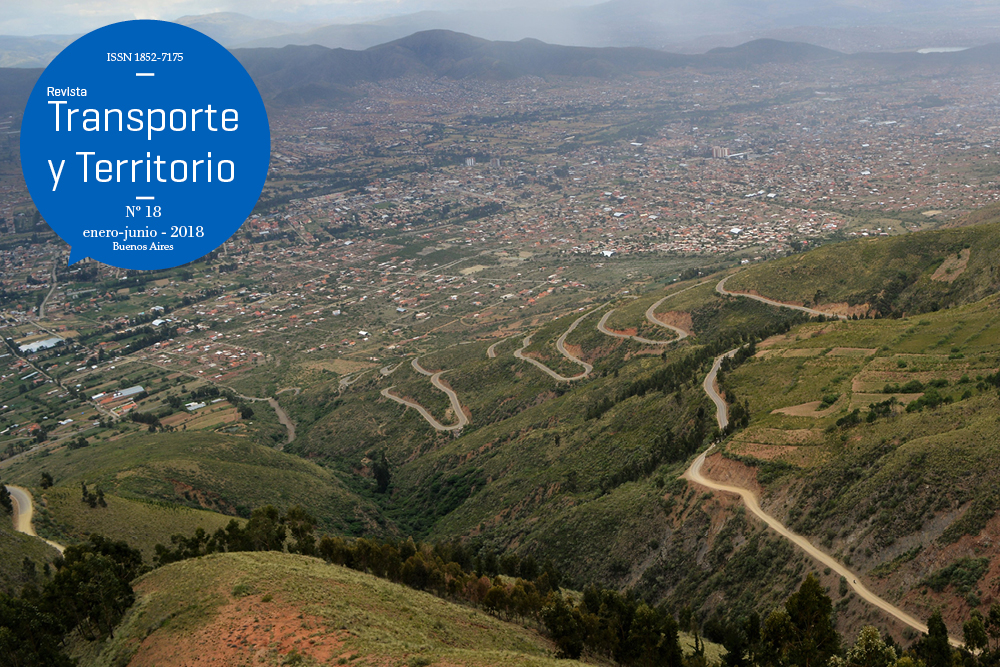Bolivia: road strategies towards a "country of contacts"
Keywords:
Bolivia, corridor, integration, territory, transport
Abstract
This article presents partial findings from a research project regarding road and railroad development in Bolivia, based on its relation with the discourse around “the country of contacts”. It offers a general description –from a historical and geographical perspective– of the attempts by the Bolivian state to become connected to neighboring countries, consolidate its borders, and activate a strategy of road and railroad development which are able to link the Pacific and Atlantic coasts by passing through Bolivia. Evidence is put forth in relation to some of the difficulties and challenges in establishing transport routes to reach these borders, resulting in consequences for the structure of the territory and the human settlement system. Within this framework, we discuss the discursive construction of the Bolivian state with regards to current transport and integration projects such as the Central Bioceanic Rail Corridor (CFBC) and the upgrading of central axis highway towards a motorway. The discourse of “the country of contacts” finds –possibly for the first time in Bolivian history– adequate conditions to become a reality. However, it fails to avoid tensions with local-level mobility systems, or territorial projects which represent both forms and routes of transport.Downloads
Download data is not yet available.
How to Cite
De Marchi Moyano, B., Morales Quintela, H. I., & Machicado Murillo, M. C. (1). Bolivia: road strategies towards a "country of contacts". Revista Transporte Y Territorio, (18), 202-221. https://doi.org/10.34096/rtt.i18.4934
Section
Dossier

1.jpg)

3.png)























